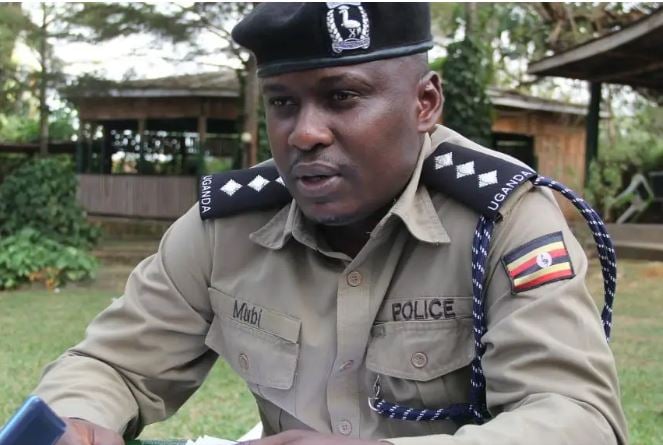-
What you need to know:
- Under the proposed law, anyone who engages in same-sex activity or who identifies as LGBTQ could face up to 10 years' imprisonment.
- The bill comes as conspiracy theories accusing shadowy international forces of promoting homosexuality gain traction on social media in Uganda.
- According to police, "three of the men serve the purpose of being women", adding that lubricants, among other fetishes, were discovered in their room.
- Mr Mubi added that the Force is looking for more suspects because they believe the racket is big.
- In 2014, President Museveni signed a law that imposed life imprisonment for homosexual relations, but the law was weeks later repealed by Court.
Police in Jinja City have arrested six men on allegations of engaging in homosexuality after their video recording went viral on social media.
Their arrest follows a 17-second video clip, which has since been shared on various social media platforms, showing the four having sex.
In the video, the faces of two young men are visible, while the other two are hidden, according to police.
Speaking to this publication on Friday, the Kiira Region Police Spokesperson, Mr James Mubi, said they have six men in their custody in connection to the video.
“Using our intelligence, we have arrested six men from Mpumudde Ward, Northern Division in Jinja City; we found them in one room," Mr Mubi said.
According to Mr Mubi, "three of the men serve the purpose of being women", adding that lubricants, among other fetishes, were discovered in their room.
Mr Mubi added that the Force is looking for more suspects because they believe the racket is big.
“I appeal to the public to give us more information about other suspects. Police is playing its role, and the public should also do the same,’’ he said, adding that the suspects will be taken to Court anytime.
Their arrest brings to eight the total number of suspects arrested due to same-sex relationships.
READ: Suspected lesbian couple further remanded in Jinja
On March 3, Police arrested the Deputy Head teacher of PMM Girls' School in Jinja City, Ms Lydia Mukodha, together with her alleged lesbian partner, Ms Martha Naigaga, and were remanded to Kirinya Prison until March 28.
In 2014, President Museveni signed a law that imposed life imprisonment for homosexual relations, but the law was weeks later repealed by Court.
Currently, the Anti-Homosexuality Bill (2023), among other intentions, prohibits same-sex relationships, safeguards traditional and cultural values, and protects youth and children against lesbian and gay practices.
The arrest comes hours after President Museveni on Thursday described gay people as "deviants" and called for an investigation into homosexuality as MPs prepare to vote on the anti-LGBT bill again.
The bill, introduced earlier this month, proposes tough new penalties for same-sex relations in a country where homosexuality is already illegal, sparking criticism from human rights groups.
In a state of the nation address before MPs at Kololo ceremonial grounds in Kampala, Mr Museveni, who has ruled Uganda since 1986, called gay people deviants as MPs urged him to comment on the new legislation.
"The homosexuals are deviations from normal. Why? Is it by nature or nurture? We need to answer these questions," the 78-year-old said.
"We need a medical opinion on that. We shall discuss it thoroughly," he said.
Under the proposed law, anyone who engages in same-sex activity or who identifies as LGBTQ could face up to 10 years' imprisonment.
The bill comes as conspiracy theories accusing shadowy international forces of promoting homosexuality gain traction on social media in Uganda.
"Western countries should stop wasting the time of humanity by trying to impose their practices on other people," Museveni said in an address boycotted by all but one opposition legislator.
"Europeans and other groups marry cousins and near relatives. Here, marrying in one's clan is taboo. Should we impose sanctions on them for marrying relatives? This is not our job," he added.
The bill is due to be discussed next week, with a vote possible as early as Tuesday. Daily Monitor






